Harnessing the sun to power Afghanistan’s development
January 26, 2024
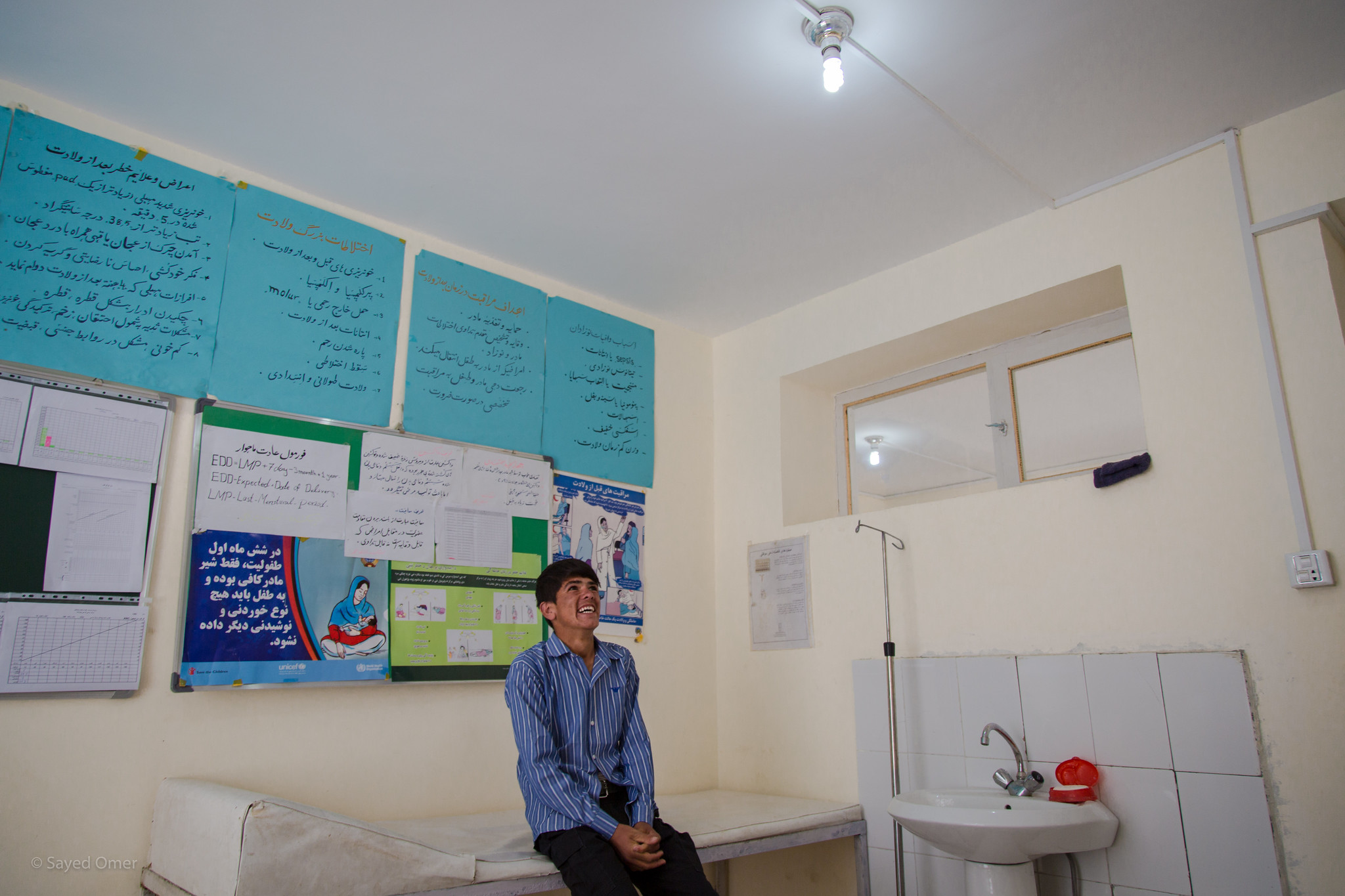
The solar systems ensure uninterrupted power supply, enabling better service delivery in health care, and education sectors apart from contributing to the local livelihoods.
Afghanistan's electricity sector faces major challenges such as limited access to energy, especially in rural areas, and high dependence on imported electricity. These challenges have negative impacts on the provision of essential services such as health facilities, education, humanitarian assistance, development, and economic recovery.
Another key challenge is the imbalance between energy demand and supply in the country. Afghanistan's domestic power generation is inadequate to meet its energy needs, as it relies mostly on fossil fuels and generators, which are inefficient and unsustainable. As a result, the country is heavily dependent on imported electricity from neighbouring countries, such as Central Asia and Iran, which supply over 75% of its electricity.
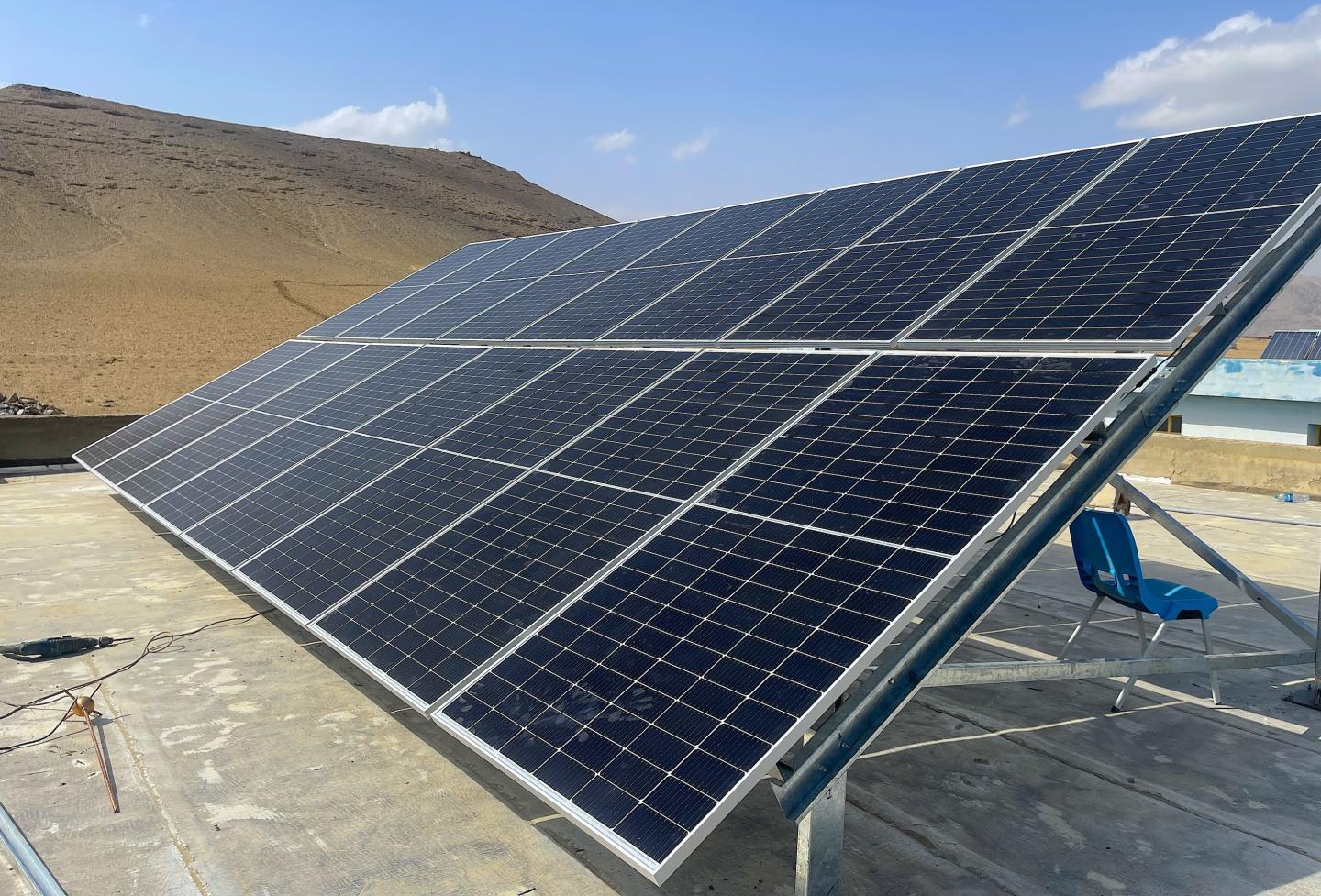
However, the imported electricity only covers 40% of the demand, leading to frequent and prolonged load shedding, especially during the winter season, when the demand peaks and the supply drops. This includes most of the health facilities and the schools.
Despite ongoing efforts, this situation remains unresolved, leaving patients and students with limited access to energy. Provincial hospitals connected to the grid also have regular shutdowns of 5 to 6 hours each day, with some days lasting up to 12 hours especially in winter seasons, necessitating the usage of costly and ecologically harmful big generators.
In response, the UNDP has launched solarization initiatives aiming to tackle Afghanistan's energy challenges through the implementation of solar power. The initiative focuses on targeted regions and communities, aiming to provide sustainable energy access and improve livelihoods.
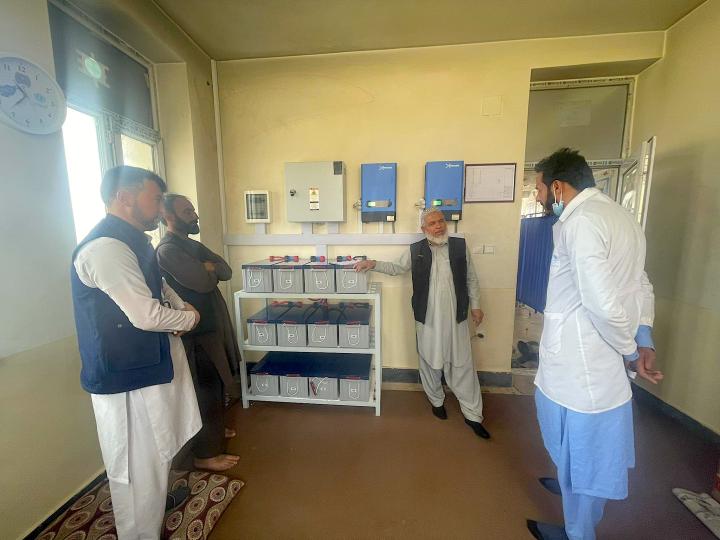
One such initiative is, “Sustainable Energy Services for Education and Health in Afghanistan” (SESEHA) focusing on health facilities and schools. So far, it has installed solar systems in 30 health centres, and 15 schools in Kabul and Kapisa provinces in 2023. The solar systems ensure uninterrupted power supply, enabling better service delivery in health care, and education sectors apart from contributing to the local livelihoods. The introduction of solar is reducing the use of polluting and costly generators, avoiding carbon emissions and enabling the delivery of essential services by powering critical equipment at these public facilities. With solar, educational institutions are creating a better environment for learning and teaching, as well as digitalization of administrative processes such as printing educational material. Some of the health and educational facilities have also installed water pumps, providing access to clean groundwater.
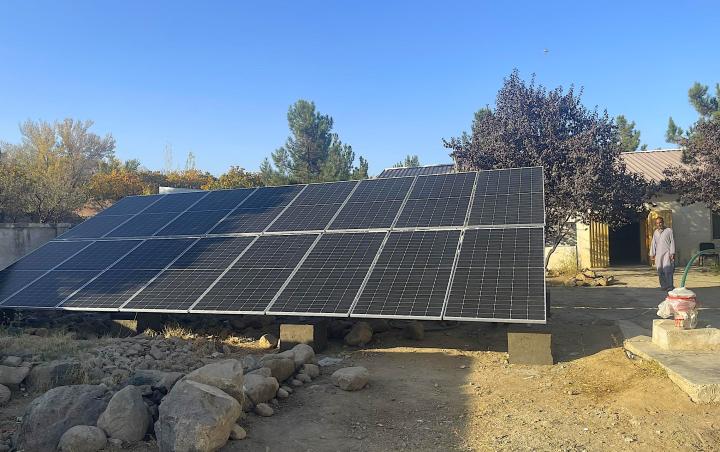
In addition to these public services, UNDP Afghanistan has also focused on solarizing 660 households under the ABADEI program that were not connected to the electricity grid. By equipping families with solar systems and fuel-efficient coke stoves, they can reduce their gas and fuel expenses associated with cooking meals. The installed solar systems serve multiple purposes, including providing lighting for children to study at night. They also power DC appliances like fans, mobile chargers, television and radio, enabling access to news and online learning opportunities. This not only saves money but also decreases the risk of diseases caused by traditional cooking methods and indoor air pollution.
Furthermore, the initiative has installed solar panels with a total capacity of 144 kW, supporting the businesses in 44 sites of poultry, dairy, and fruits dryers and tailoring in 16 districts of Kabul, Kapisa and Wardak provinces under the ABADEI programme. These provinces have facilitated the initiation of new businesses and provided training opportunities. This has benefited 1,784 beneficiaries, enabling them to use clean energy for training purposes and business operations. These centres not only contribute to the community by providing domestic products but also serve community motivation, further development of the centres, and the creation of opportunities while familiarizing the community with modern systems.
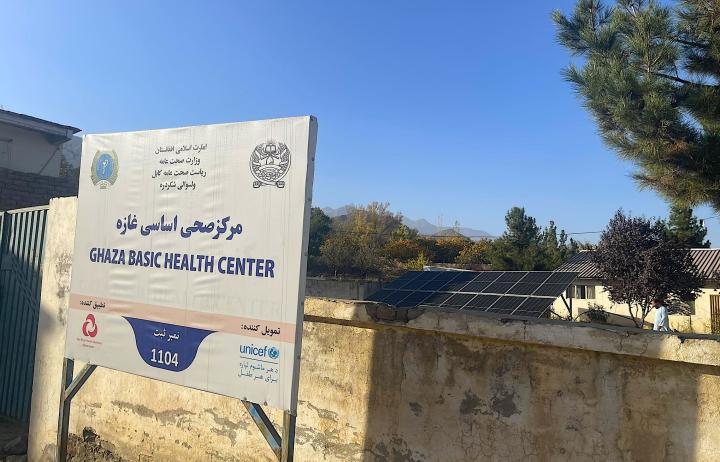
As part of the UNDP solarization initiative, two provincial hospitals in Kabul and Kapisa province are equipped with a 100 kW solar system under the ABADEI programme. This installation ensures the availability of clean energy during the daytime, enabling the operation of medical equipment in hospitals that receive 500 to 700 patients daily, including 150 to 200 hospitalized patients. This intervention not only reduces the hospitals' electricity expenses by avoiding the use of expensive diesel generators, but also allows funds to be allocated towards medical services apart from reducing carbon footprints.
"The installation of solar systems has brought significant improvements," says Dr. Rohullah Waziri, Head of the Dara-e-Ghain Sub Health Centre. "It has replaced the need for expensive and polluting diesel generators, providing free and reliable electricity for lighting, water pumps, and refrigerators. This sustainable power solution ensures uninterrupted power supply for essential healthcare services." he added.
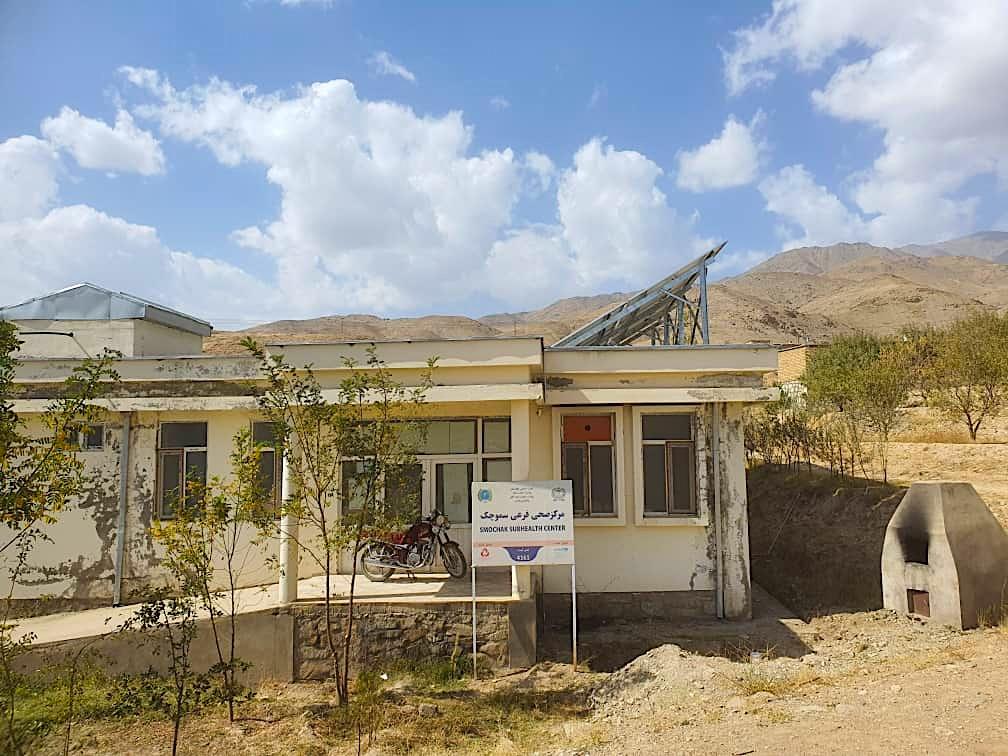
UNDP solarization initiative is a crucial step towards addressing Afghanistan's energy challenges. So far, the initiative has provided clean and reliable electricity to over (172,000) people in the Central region. By harnessing solar energy, the initiative improves access to reliable and sustainable electricity, positively impacting communities, and the environment. Continued support and investment in sustainable energy solutions are essential for driving positive change and illuminating Afghanistan's future.

 Locations
Locations


